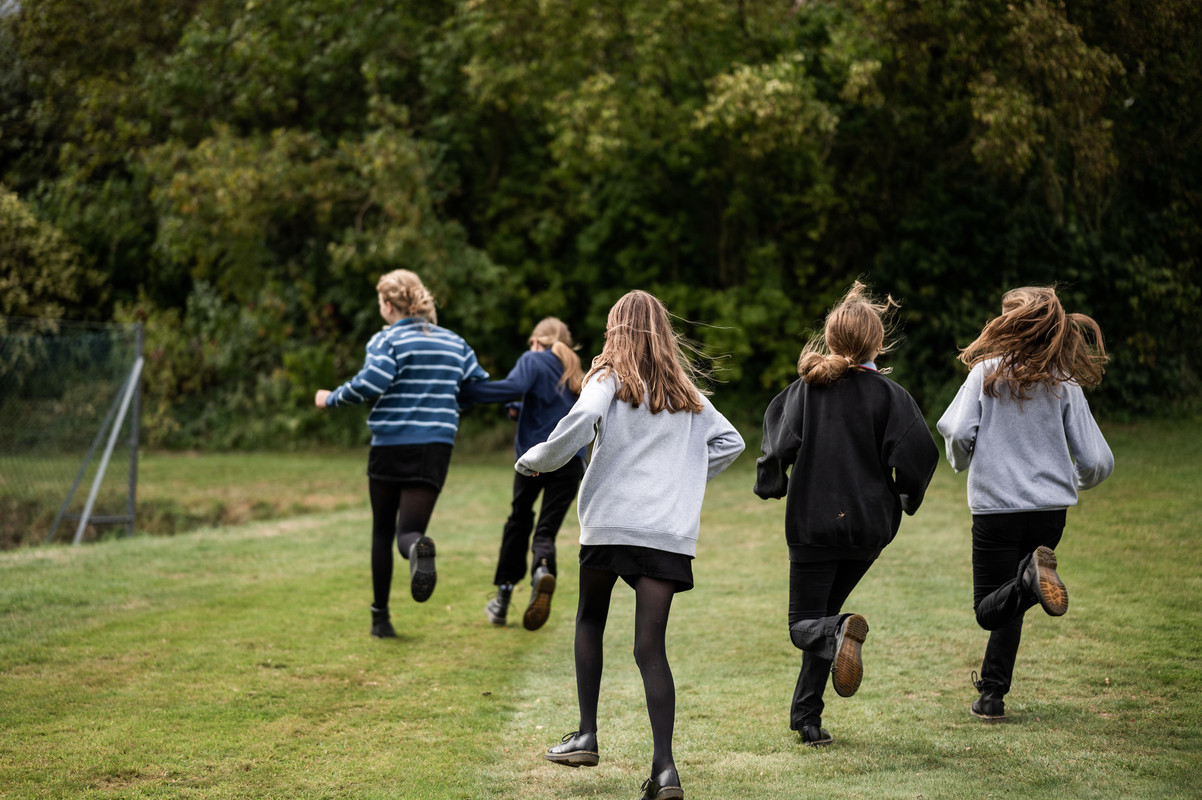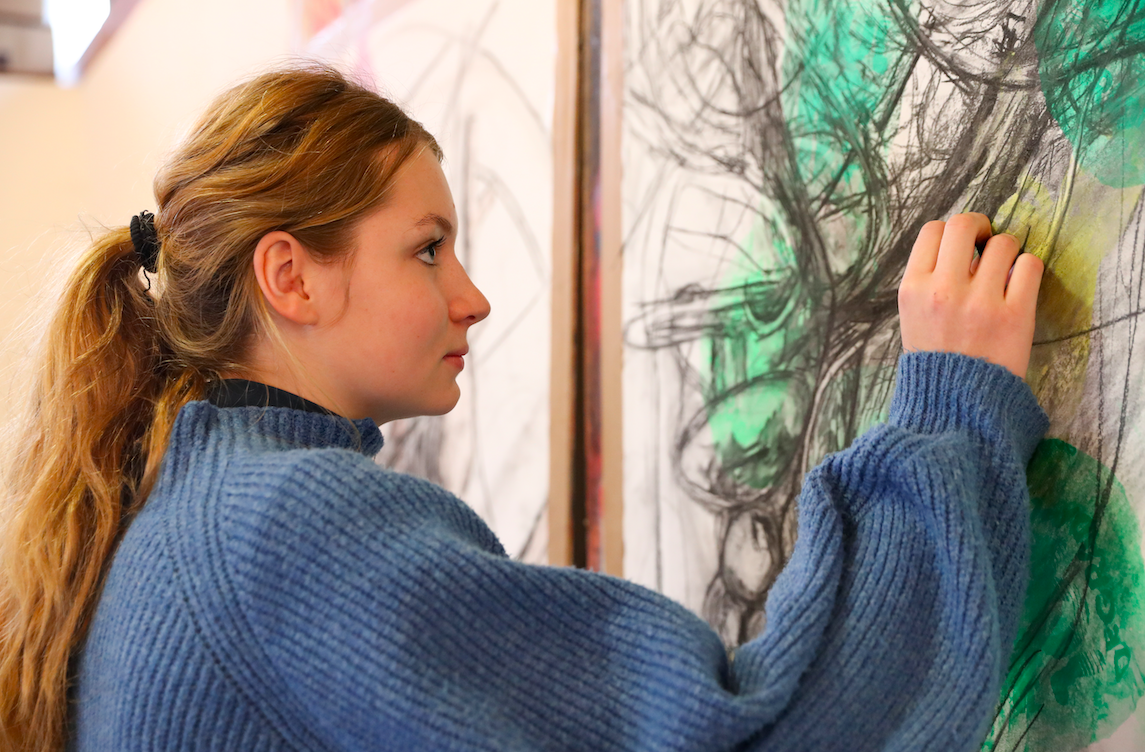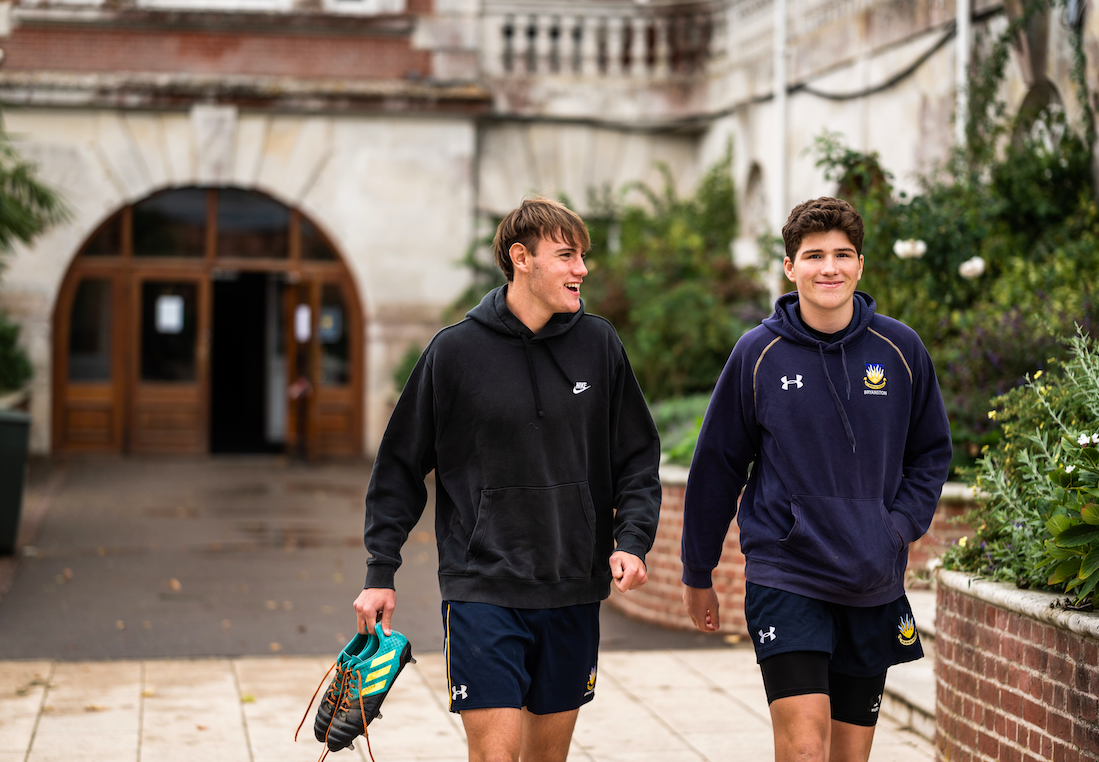Reflecting on a visit from Schools Consent Project
In our latest blog post, Teacher of English Mark Belassie-McCourt, discusses what happened when Schools Consen...
Read MoreDeputy Head Co-Curricular Andrew Murfin asks us to change the narrative about the so-called ‘Generation Covid’…
 At the beginning of the month, my Twitter feed had something of a royal flavour, thanks to a Duchess and a Knight of the Realm. Children’s Mental Health Week started with a video message from HRH The Duchess of Cambridge imploring children, and parents, to find creative ways to express themselves, and to be the best versions of themselves respectively. This was closely followed by the death of Captain Sir Tom Moore, a national hero following his exploits in Lockdown 1.0, who inspired us all with his charitable walking for the NHS. Young and old, lockdown is affecting us all.
At the beginning of the month, my Twitter feed had something of a royal flavour, thanks to a Duchess and a Knight of the Realm. Children’s Mental Health Week started with a video message from HRH The Duchess of Cambridge imploring children, and parents, to find creative ways to express themselves, and to be the best versions of themselves respectively. This was closely followed by the death of Captain Sir Tom Moore, a national hero following his exploits in Lockdown 1.0, who inspired us all with his charitable walking for the NHS. Young and old, lockdown is affecting us all.
While the young are at less risk of the severe forms of Covid-19, the under 25s may feel the fallout of the pandemic more harshly. Consequently, the term ‘Generation Covid’ has been coined; a label to highlight that the pandemic may leave a permanent scar on our young. For many years, generations have been labelled: from Captain Tom’s ‘Silent Generation’ (born 1920s to mid-1940s) and the ‘Baby Boomers’ (c.1946–64) to ‘Generation X’ (c.1965–79) and the ‘Millennials’ or ‘Gen Y’ (c.1980s–2000s). I, myself, am part of a micro-generation called the ‘Xiennals’ (c.1977–1985) sandwiched between Gen X and Gen Y, and characterised by having an analogue childhood and digital adulthood; oh, and, importantly, quality music when indie mixed with grunge to give rise to the likes of Oasis, Blur and the Verve (you’re welcome!) as well as pop bands like the Spice Girls, Take That and Backstreet Boys (you’re also welcome?).

Back to the youth, and ‘Gen Z’ (c.2000–10) and ‘Gen Alpha’ (c.2010+) being labelled as Generation Covid. Adolescence and growing up is tough at the best of times but the pandemic is making this harder. It is easy to see why the under 25s feel disgruntled. The impacts of national and international economic and geo-political issues will affect them more acutely and with greater longevity: curtailed educations, diminished job prospects, reduced social contact with peers, housing poverty, climate change, leaving the EU, and both them and their educators not high on the vaccine priority list and therefore difficult to see an end in sight.
The pressure on parents is enormous; they’re doing an exceptional job balancing work commitments and home schooling. The pressure on school staff is huge; many support staff are furloughed, while teachers wrestle with new technologies to keep live lessons interesting, as well as look after key workers’ children. And children, too, are under pressure; many too young to understand and those that do understand are trying to make sense of it all. It’s my job as a school leader to reassure our school community that yes, it’s hard, but yes, it will pass; and as a school to bring stability and normality. We, as always, will be optimistic and do all that we can, as we did at the start of the lockdown, to get pupils back to Bryanston as soon as possible. Let’s all be rays of sunshine, not dark clouds. To paraphrase Charlie Mackesy’s words, whose book I received for Christmas, the pages of positive philosophy well-thumbed since then: ‘The dark clouds will move on, and the blue sky above never leaves’.
There have been grim reports about teenagers and their mental health. A narrative that tells children – especially in the media – that they are a lost generation and that Covid is a disaster for them is not helpful. Sure, Lockdown 3.0, through what seemed like an endless January, has generated extra feelings of boredom, worry, loneliness, annoyance or confusion. It’s okay and perfectly natural to feel these things. Equally, there is a worrying increase in the number of serious mental health issues, so a multi-faceted approach is needed to deal with this dimension of the pandemic. We’re exceptionally fortunate at Bryanston that our culture has a strong focus on wellbeing and developing skills for life, while our method of education is based upon pupil-centred relationships with the individual at the heart; the two combining to nurture purposeful, considerate, curious and well-rounded individuals, with a recognisable self-reliance.

As challenging as it is, let’s try our hardest not to catastrophise, rather, to emphasise hope. Let’s change the narrative: our young people should take pride in the self-reliance and inventiveness they have drawn upon to deal with the pandemic so far. These along with creativity and the resilience to bounce back from setbacks are highly sought-after attributes. This generation is more connected, more technologically developed than any other and, while it doesn’t compensate for seeing friends in person, let’s not allow them to be labelled as a snowflake generation, or the lost Generation Covid. They are so much more than that. And now, with the return to school in sight, we’ve got a summer term to look forward to.
Similarities have been drawn to the lockdown being like times of war but, as was mentioned recently by India Knight in the Sunday Times, ‘it’s not the Blitz’! It’s really tough, don’t get me wrong, but she’s right in that we haven’t been evacuated and we aren’t being bombed, but we’ve all been pushed out of our comfort zones. It’s a difficult theme to stick one’s head above the parapet and contribute to the debate as, for some, the lockdown has brought serious consequences in many different guises; many that were coping in difficult circumstances have seen the balance tip. A doff of the hat to Marcus Rashford in this regard (footballers don’t always get positive press, but a future Knight of the Realm surely) for his work in highlighting the issues of food poverty, accentuated during lockdown.

A proverb, modified from Plato, comes to mind: ‘Necessity is the mother of all invention'. Lockdown has highlighted many more needs and our young have invented creative ways of coping. Learning a new skill, or refining an old skill, has been important and we may find that many lost skills are given a new lease of life. Knitting anyone? Banana bread? Sign language? Setting up a radio station? Walking 100 laps of your patio like Sir Tom? At Bryanston, our extra-curricular and ‘Active’ programmes have flourished with new and old skills being enjoyed across 150+ sessions per week, and a good number of pupils have shown considerable creativity with ‘self-led’ sessions. It has often been said that 65% of children will work in jobs that don’t currently exist; creativity and adaptability will help prepare them for an ever-evolving world.
We all look back fondly on our own generation’s upbringing – did I mention the Xiennials gave you Oasis? – and today’s young people could, in time, look back and reflect upon how they overcame the adversity of home-schooling to strengthen important characteristics, to develop new ways of living… and went on to become the best prepared for life as a result.